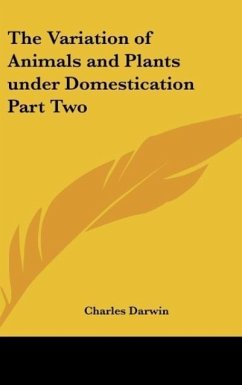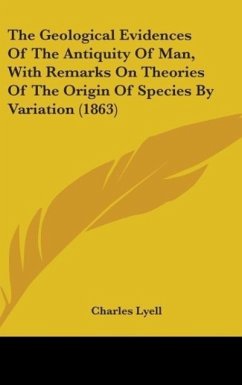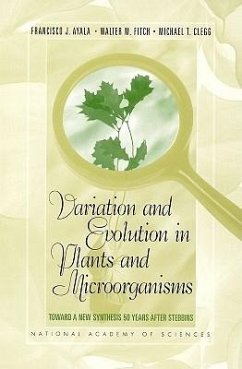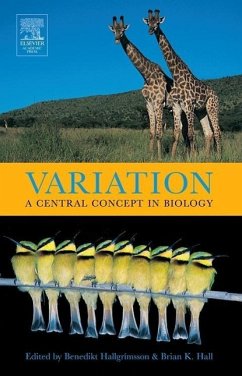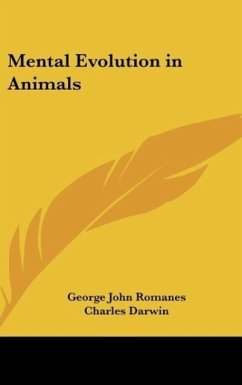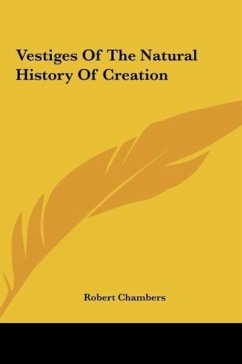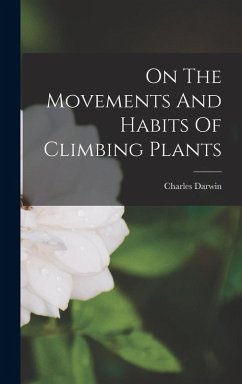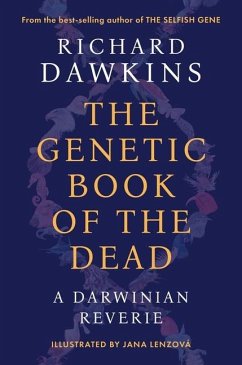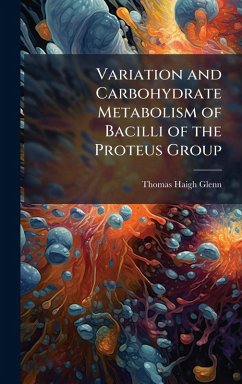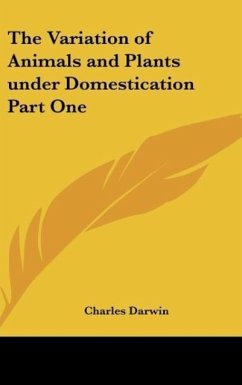
The Variation of Animals and Plants under Domestication Part One
Versandkostenfrei!
Versandfertig in 1-2 Wochen
43,99 €
inkl. MwSt.

PAYBACK Punkte
22 °P sammeln!
1885. Part One of Two. Darwin, the British naturalist who became famous for his theories of evolution and natural selection, writes in the introduction: The object of this work is not to describe all the many races of animals which have been domesticated by man, and of the plants which have been cultivated by him; even if I possessed the requisite knowledge, so gigantic an undertaking would be here superfluous. It is my intention to give under the head of each species only such facts as I have been able to collect or observe, showing the amount and nature of the changes which animals and plant...
1885. Part One of Two. Darwin, the British naturalist who became famous for his theories of evolution and natural selection, writes in the introduction: The object of this work is not to describe all the many races of animals which have been domesticated by man, and of the plants which have been cultivated by him; even if I possessed the requisite knowledge, so gigantic an undertaking would be here superfluous. It is my intention to give under the head of each species only such facts as I have been able to collect or observe, showing the amount and nature of the changes which animals and plants have undergone whilst under man's dominion, or which bear on the general principles of variation. Contents: Domestic Dogs and Cats; Horses and Asses; Pigs-Cattle-Sheep-Goats; Domestic Rabbits; Domestic Pigeons; Fowls; Duck-Goose-Peacock-Turkey-Guinea Fowl-Canary Bird-Goldfish-Hive Bees-Silk Moths; Cultivated Plants: Cereal and Culinary Plants; Fruits-Ornamental Trees-Flowers; On Bud Variation and On Certain Anomalous Modes of Reproduction and Variation; and Inheritance. See other titles by this author available from Kessinger Publishing. Other volumes in this set are ISBN(s): 1417937513.



